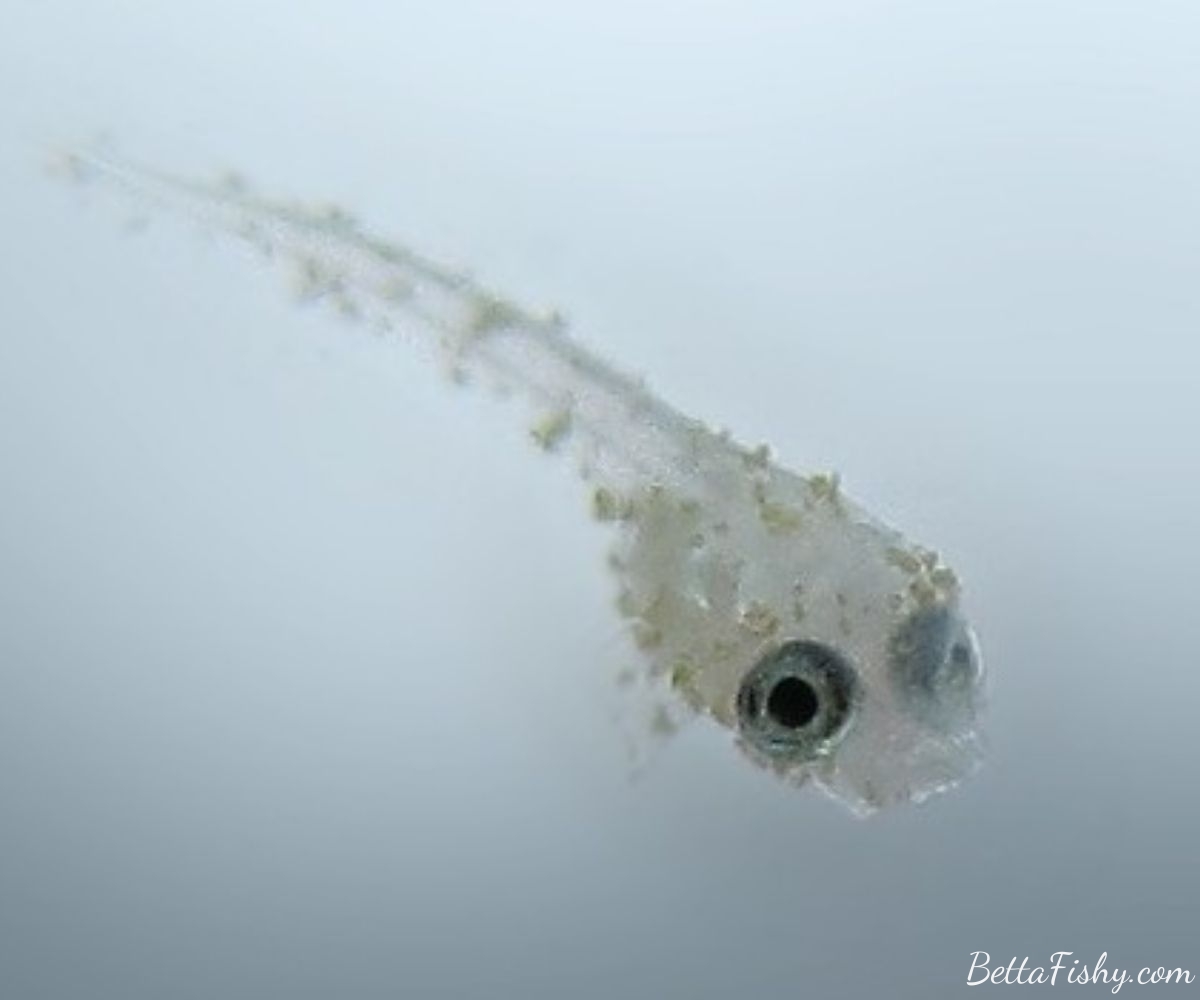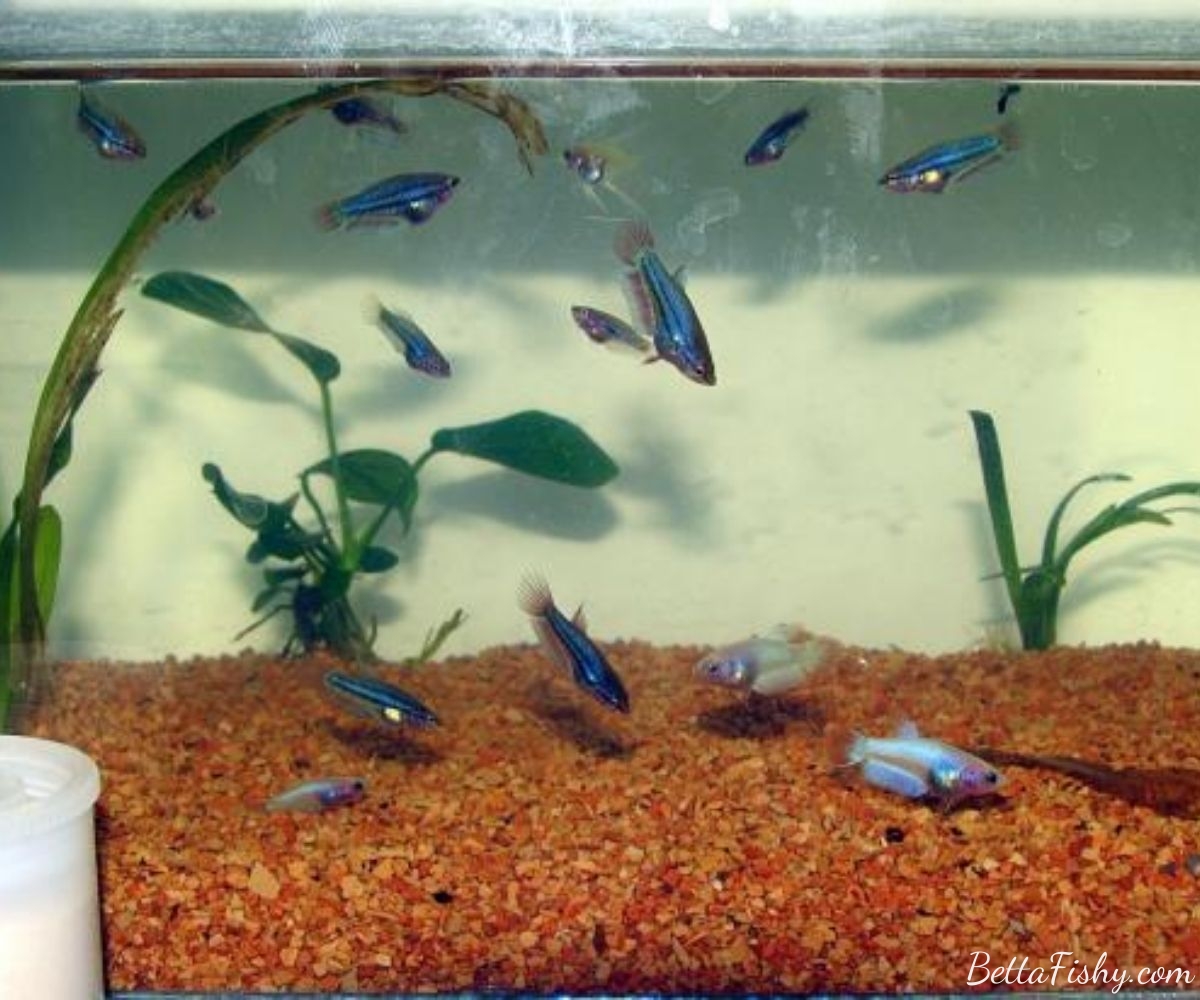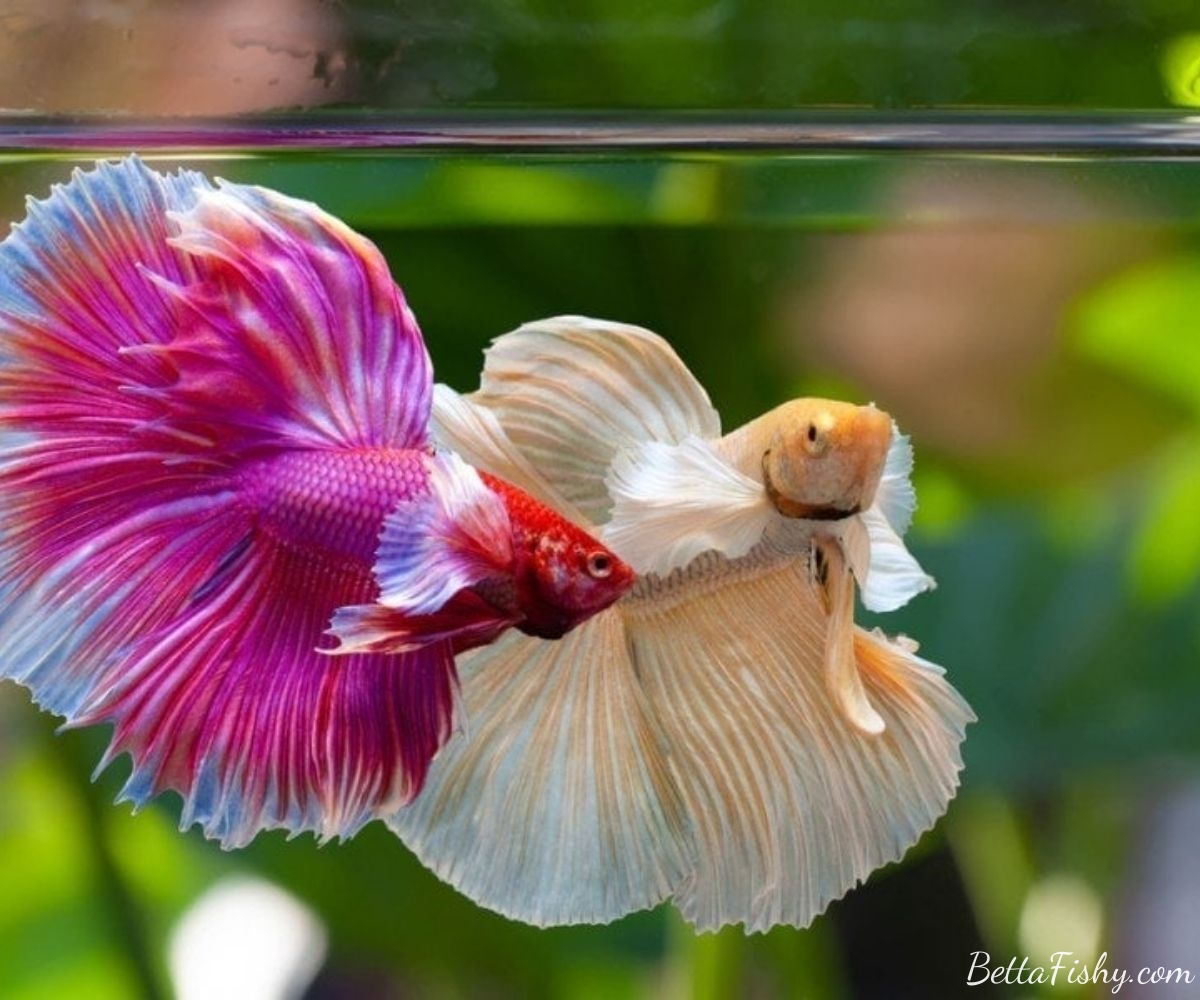Betta fish, also known as Siamese fighting fish, have captivated aquarium enthusiasts for years. Their dazzling colors, flowing fins, and captivating behavior might make you wonder, “How Big are Betta Fish?“ But beyond their mesmerizing beauty lies a need for optimal care, which hinges on understanding their size and growth patterns. This comprehensive guide will explore the natural size range of betta fish, their various growth stages, and the key factors that determine their final size. We’ll also shed light on common myths and provide valuable tips for promoting healthy growth in these captivating creatures.
The Natural Size Range of Mature Betta Fish
The natural size range of mature betta fish can vary based on breed and gender. Generally, male betta fish tend to be larger than females, with some reaching lengths of up to 3 inches. Females typically fall between 2 and 2.5 inches in length. However, certain breeds, such as the plakat betta, are known for their smaller size, typically measuring around 2 inches or less. It’s important to note that these are general ranges, and individual fish may vary in size due to various factors that we’ll explore later.
Betta Growth Stages
Like most fish, bettas go through distinct growth stages as they progress from fry to juveniles and eventually to adulthood. Let’s take a closer look at each stage:
Fry and Juveniles

When betta fish hatch from their eggs, they are considered fry. At this stage, they are very small, usually measuring around 0.25 inches in length. As they grow, they enter the juvenile stage, which lasts until they reach sexual maturity. During this stage, they will continue to grow and develop their vibrant colors and unique fin shapes.
Maturity
Once betta fish reach sexual maturity, they are considered adults. This stage typically occurs around 6-8 months of age for most breeds. At this point, their growth rate will slow down, and they will reach their maximum size.
Full Grown
The final stage in a betta fish’s growth is when they reach their full-grown size. As mentioned earlier, the natural size range for mature bettas can vary, but on average, males will measure around 3 inches, while females will be slightly smaller at 2-2.5 inches. It’s essential to note that some bettas may continue to grow slightly throughout their lifespan, but it will be minimal.
Factors that Influence the Size of Betta Fish

Now that we have a better understanding of the natural size range and growth stages of betta fish let’s explore the significant factors that can influence their size.
Genetics and Breed
One of the most significant factors that determine the size of a betta fish is their genetics and breed. Some breeds, such as the plakat betta, are known for their smaller size, while others, like the giant betta, can grow up to 4 inches in length. Additionally, some bettas may come from a line of larger or smaller fish, which can also impact their ultimate size.
Diet and Nutrition
Diet and nutrition play a crucial role in the growth and development of betta fish. A well-balanced diet that includes high-quality pellets, frozen or live foods, and occasional treats will provide all the necessary nutrients for optimal growth. It’s essential to avoid overfeeding, as this can lead to obesity and stunted growth in bettas.
Tank Size and Environment
The size of the tank and the environment in which a betta fish lives can also affect its size. In smaller tanks, bettas may not have enough space to swim and exercise, which can lead to stunted growth. Additionally, poor water quality and inadequate filtration can also impact their overall health and size.
Male vs. Female Size Differences

When it comes to betta fish, there are noticeable differences in size between males and females. This is a common characteristic among many species in the animal kingdom, and it can be attributed to various factors. In the case of bettas, their size difference is closely linked to their natural roles in the wild.
In their natural habitat, male bettas are responsible for protecting and defending their territory. This means that they need to be larger and more robust in order to effectively ward off potential threats from other fish or predators. On the other hand, female bettas have a different role – they focus on breeding and caring for their young. As such, they do not require the same level of physical strength and size as males.
However, it’s important to note that there can be significant variations in size between individual betta fish, regardless of their gender. Just like humans, each fish has its own unique genetic makeup and may grow to different sizes. Additionally, factors such as diet, water quality, and overall health can also play a role in determining the size of a betta fish.
It’s also worth mentioning that while male bettas are generally larger than females, this is not always the case. There are instances where a female betta may grow to be larger than a male, depending on various factors. Therefore, it’s essential to consider each fish individually rather than making assumptions based on their gender.
In conclusion, the size difference between male and female betta fish is a natural occurrence that can be attributed to their respective roles in the wild. However, it’s important to remember that there can be significant variations in size between individual fish, and gender should not be the sole factor in determining the size of a betta.
Tips for Promoting Optimal Growth in Betta Fish
Now that we understand the factors that influence the size of betta fish let’s explore some tips for promoting optimal growth in these captivating creatures:
- Provide a well-balanced diet with high-quality pellets, frozen or live foods, and occasional treats.
- Avoid overfeeding and monitor your betta’s weight regularly.
- Ensure adequate space in the tank for swimming and exercise.
- Maintain good water quality and proper filtration.
- Consider adding plants and decorations to the tank to create hiding spots and mimic their natural habitat.
- Monitor for any signs of illness or disease and treat promptly to prevent stunted growth.
How Big are Betta Fish? Busting Common Myths About Betta Fish Size
There are many myths surrounding the size of betta fish, so let’s take a moment to debunk some of the most common ones:
Myth 1: Bettas will only grow to the size of their tank.
This is a prevalent myth, but it’s entirely false. While a small tank may limit a betta’s growth potential, it will not stop them from growing altogether. As long as they have proper nutrition and care, bettas will continue to grow until they reach their maximum size.
Myth 2: Feeding bettas live food will make them grow faster.
While live food can be a nutritious addition to a betta’s diet, it will not make them grow faster. Overfeeding live food can lead to obesity and other health issues, so it’s essential to offer a balanced diet and monitor their weight regularly.
Myth 3: Female bettas are always smaller than males.
While this is generally true, there can be significant size differences between individual fish, regardless of their gender. Additionally, some female bettas may grow larger than males in certain breeds.
Conclusion
In conclusion, the diverse world of betta fish size – a question often phrased as “How Big are Betta Fish?” – reveals their unique relationship with breed, gender, and environmental factors. But beyond this range, what truly matters is understanding their growth stages and the key elements that influence their well-being. By implementing the tips throughout this guide, you can cultivate the perfect environment for your betta to thrive, regardless of their final size. Remember, every betta is a captivating individual, and with your dedicated care and attention, they’ll continue to mesmerize you with their beauty and captivating behavior.


